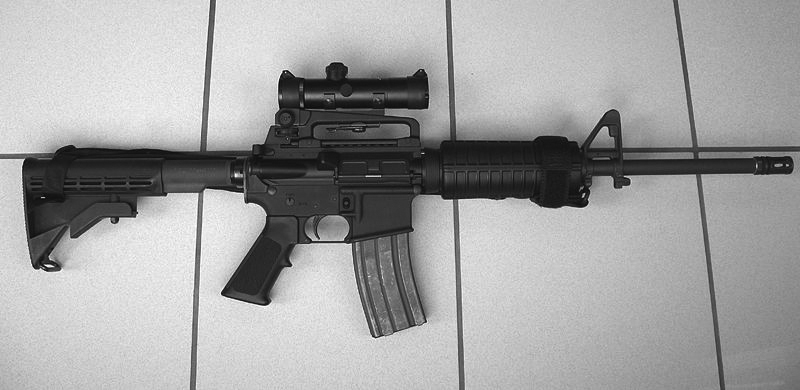While mass shootings are roughly as common now as they have been for the last several decades, they are getting deadlier. After Sunday’s shooting at a rural church in Sutherland Springs, Texas, which has left 26 people dead, the call has gone out from many Democrats in Congress, and even former President Barack Obama, to “tighten gun laws.” So, should we?
In the case of the most recent Texas shooting, the answer is no. In fact, this call for further legislation represents a crucial flaw in the gun-control argument. When David Patrick Kelly entered the First Baptist Church in Sutherland Springs, he was carrying a Ruger AR 556 rifle, a firearm that he shouldn’t have even been able to purchase. Kelly is a former Airman who was given a “bad-conduct” discharge for charges of assault against his wife that led him to be court-martialed. While a “bad-conduct” discharge does not legally restrict him from purchasing a gun (a dishonorable discharge would), his charges of assault also qualify as domestic violence, which disqualifies him as a citizen for gun ownership. Kelly purchased the weapon from a store in San Antonio and filled out the box on the federal government firearm transaction record that he didn’t have a disqualifying criminal history.
Lying on a firearms transaction record is a felony punishable by up to five years in jail. Current gun control laws would have restricted him from purchasing a firearm. Kelly broke the law. How would more laws have prevented him from doing what he did anyway? After all, just last week a terrorist in New York City killed eight people without a gun at all, but with a truck. Should we ban trucks too?
Nevertheless, a fact that is often overlooked is how Kelly was stopped. When local resident Johnnie Langendorff heard shooting, he grabbed his own rifle. Langendorff engaged Kelly, causing Kelly to flee in his vehicle with Langendorff in pursuit. Kelly was later found in his truck dead of a gunshot wound. Thus far, it is unclear whether that gunshot wound was self-inflicted or inflicted by Langendorff. Regardless, Kelly was stopped by the involvement of a good guy with a gun.
The question of whether we need tighter gun laws or not will still rage despite this most recent incident. There are certainly merits to the arguments of both sides of tighter guns laws; however, in this case, it is important to ask ourselves, would more laws have stopped anything?



